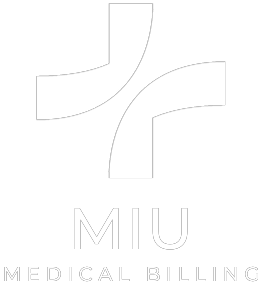Introduction
In today’s diverse environment of medical service delivery, medical practice management is the unsung backbone of these facilities. It is a broad concept covering almost all the functions required to manage a medical practice. It plays a significant role in ensuring that medical practitioners and stakeholders deliver competent services while at the same time keeping the medical practice financially integrated and dynamic. This guide will further present the concept of practice management and learn how the service affects healthcare provision and why it is vital in today’s practice.
The Core Components of Practice Management in Healthcare

Medical practice management entails a lot of tasks that are aimed at ensuring that healthcare facilities operate efficiently. These are the facets of operational management, such as finance, human resources, appointments, charges and coding, health care compliance, and technology. By effectively managing these areas, healthcare providers can focus on what matters most: patient care. It maintains a coherent system through all medical practice functions, making it a well-run, efficient machine that benefits patients and physicians.
Financial Management: The Backbone of Successful Medical Practices
Financial management is one of the main pillars that should be given special attention in managing a medical practice. This entails budgeting issues, the revenue cycle, and measures used to control costs. Most medical practices require proper organization and financial management to enable them to sustain themselves and continue treating patients. This is another area of consultation most often provided by practice management consultants who assist healthcare organizations in enhancing their revenues. According to the paper today, sound financial management practices foster effective healthcare financial management in an environment characterized by stiff competition among medical practices.
Streamlining Operations: The Key to Efficient Healthcare Delivery
Medical practice management can be summed up regarding operational efficiency, which is vital for the practice. This includes process reengineering, patient throughput, and decreasing patient wait time. This means that operations can be efficient and permit healthcare providers to attend to many patients while maintaining quality. The medical practice management services usually encompass the matters of process analysis and optimization of the flow. From free appointment reminder systems to electronic medical records, these technologies assist practices in becoming more effective.
Human Resources: Building a Strong Healthcare Team
To achieve the goal of physician practice management, it is amply evident that one has to be thoroughly serious about human resources. These involve getting and keeping the best employees for the organization, staffing/employee scheduling, and creating an influential workplace culture. Similarly, through a solid team, medical practices can go a long way in enhancing the services accorded to patients and, therefore, achieve enhanced satisfaction. There is also staff training, which doctors and other employees need to update their knowledge with the changing medical trends and advancements. The management of a healthcare team is imperative if one wants to deliver quality service and, most importantly, sustain his/her practice.
Technology Integration: Advancing Healthcare Through Innovation
It should also be noted that in the digital age, medical practice management is obsessed with technology and aims to enhance the quality of work with patients and organizational and economic indicators of the enterprise. While numerous technology functions exist in the present healthcare systems, some typical roles include the following. One must also ensure he or she has mastered new technologies to handle the practice and improve the patient’s health and operational efficiency. Thus, through implementing innovations in practices, healthcare organizations’ patients will be provided with better results and fewer errors, and the system will be more efficient.
Compliance and Risk Management: Navigating the Regulatory Landscape
This sector has so many rules and regulations, and it must adhere to them. This comprises the HIPAA rules, coding and medical billing procedures, and account quality standards. It mainly requires compliance with numerous legal requirements while offering services to patients of all ages in Family practice management. This means that even the most efficient and modern medical practice can quickly encounter legal problems; however, these difficulties can be avoided with the help of effective compliance programs and risk management tools.
Patient-Centered Care: The Ultimate Goal of Practice Management

In essence, it focuses on increasing efficiency in the organization of doctors’ practices and enhancing patient satisfaction outcomes. This includes a patient-friendly approach to care delivery, time-friendly, and effective communicative care delivery by the providers to the patients. There, no doubt is a strong correlation between the efficient management of the practice and the quality of patients’ condition, their satisfaction, and, as a result, the enhanced health of the population. Applying the concept of patient-centered care may help practices stand out among their competitors and develop loyalty among patients.
Conclusion
Indeed, new dynamics are emerging in the growth of healthcare, and thus, medical practice management is adapting to the advances, too. This again confirms that despite the advancements in technology and standardization of laws in health care, health information providers need to be adaptive and think ahead. Thus, giving importance to the effective management of their practices, medical practices can cope with the issues inherent in contemporary conditions and deliver quality services to clients. While many may have the internal know-how of how to develop and maintain a sound management system, it is crucial for even the most seasoned healthcare practice to seek professional help from its consultants for its practice to run efficiently and effectively and be sustainable in the long run.




